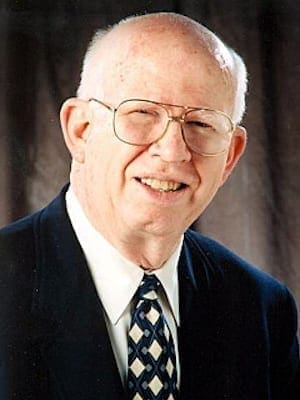“The Invisible Women: Naming and Proclaiming the Forgotten Women in Scripture and Church Law” is a book of great consequence.
Through Sister Sandra Makowski’s superb writing, research and scholarship, the poor treatment of women in the Bible, lectionary and local church is brought to new light.
Of course, Makowski writes from a Catholic perspective, but that does not mean there is no food for the rest of Christianity. As a Baptist, I was surprised by the number of things I did not know.
For example, I have never read a book or heard a sermon on Hagar and yet Makowski’s book helped me to see how Hagar becomes more and more important as international conflicts continue to unfold.
Similarly, I knew almost nothing about Huldah, the prophet who lived during the time of Jeremiah. I have been saturated with knowledge about Jeremiah and his teachings and that is Makowski’s point. Too often, we study the men and ignore the women.
In the beginning of the church, women and men shared equal status and roles. However, as the church became more and more structured it took on the cultural characteristics of the society around it. Women gradually were stricken from the leadership and their voices disregarded.
In the Catholic Church, this pattern continued unchallenged until after Vatican II, where no Catholic women were originally invited.
However, a major shift began that indicated that the laity share equally in being gifted with the Holy Spirit, being called to holiness and being engaged in the mission of the church.
Although women play major roles in the Bible, their importance is mainly marginalized by the male-dominated church, Makowski asserts. When women are mentioned, it is most often in relationship to the male figures.
Jesus reverses this practice; however, the church downplays the extraordinary recognition Jesus gave to women.
The role of women has often been described as the sleeping beauty fairytale. Women are simply to wait until Prince Charming arrives, awakens them and gives meaning to their lives through him.
It would be nice to think that that notion has been put to rest; however, we know that this isn’t true.
The Baptist Faith and Message statement of the Southern Baptist Convention in the year 2000 states, “While both men and women are gifted for service in the church, the office of pastor is limited to men as qualified by Scripture.”
Another section states, “A wife is to submit herself graciously to the servant leadership of her husband even as the church willingly submits to the headship of Christ.”
As a result, in many Southern Baptist churches, women cannot be deacons or teach men.
One of the major new ideas to me from Makowski’s book is that there were women at the Last Supper. The Scriptures do not restrict the possibility. Yet, in my life in the church this possibility has never been remotely suggested.
At the end of each chapter, Makowski includes a short story that places the reader in a situation and then asks the reader to answer several questions. These questions are very important in helping personalize the impact of what has gone before.
The concluding paragraphs of “The Invisible Women” are powerful.
“If we fail at being our best selves, or if we are not invited to the banquet, that doesn’t mean we give up. It simply means that tomorrow is another day. And tomorrow we try again with God’s grace,” Makowski writes. “It is God who has the final answer, and in the end, it is God who does the inviting. God has already extended the invitation to women and men alike. No one is excluded from the banquet.”
She continues, “Let us remember that it is God who has the last word, and in God we trust because God loves us, God sees us, God calls us by our name. We are God’s beloved – male and female alike. And nothing and no one can take that away. What more is there to say!”
Mitch Carnell is a member of First Baptist Church of Charleston, South Carolina. He is the author of “Our Father: Discovering Family.” His writings can also be found at MitchCarnell.com and ChristianCivility.com.
A member of First Baptist Church of Charleston, South Carolina, he was the author of “Our Father: Discovering Family.” Mitch’s writings can be found at MitchCarnell.com.

